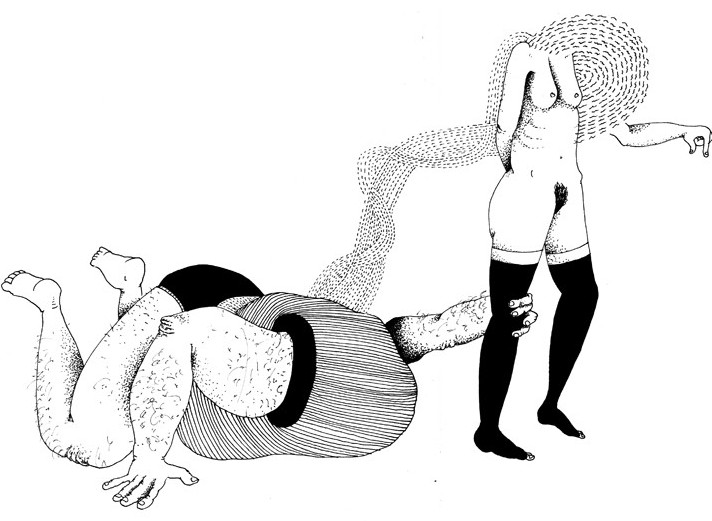Sunday, March 9, 2008
America: Economics, War, and Hegemony: Part I
I've been thinking a lot about American Economics, War, and Hegemony and their relationship with one another. This piece is intended really as an introduction to a series of postings.
To begin, it is essential to ask the first question:
What drives the world's Economy?
It's materialism stupid.
Unquestionably, it is mankind's insatiable greed for things that directs world economic markets, their patterns fluctuating on what is bought, how much of it, and how likely or unlikely such a trend is to continue.
By and large, Americans are the most acquisitive creatures in existence and are thus at the heart of the global economy. With an omnipresent network of commercialism and materialism woven into every stripe and every star of American life, it's no wonder America has been dubbed the "economic engine" of the world.
(One could surmise if a poll was taken, shopping would be listed close to the top of favorite American pastimes, competing with baseball and American Idol.)
If the world economy is impelled by excessively object-focused peoples, then what is war impelled by?
War is often driven, if we're faithful to history, not to fight tyranny or proliferate liberty, not to halt atrocities or dispense global justice, though these are the guises, but by threats to economic interests and by efforts to reach Hegemony.
Paradoxically, to go to war to protect economic assets or cement geopolitical primacy, an entity has to already have substantial economic assets and geopolitical potency to fund and fight such a war.
That said, according to the November/December issue of Foreign Affairs, "the total 2008 [US] military budget request is a whopping $647 billion." This includes the supplemental requests for the wars in Iraq and Afghanistan.
In addition, in December of 2006, with already 687,000 active-duty troops, US President George W. Bush stated, "we do need to increase our troops — the Army, the Marines," costing he failed to mention about 1.2 billion dollars per 10,000 new recruits.
At that price, to bring the US troop census up to about 1970s levels (800,000), it would cost the US about $14.76 billion, and to bring them up to Korean War levels (1.6 million) from their current status it would cost about $110.76 billion.
Adding the cost of raising the US Military to 1970s levels to Bush's military budget request, one finds the price of US extravagant wealth and political prowess to total approximately $662 billion. There are not any plans to build up troops to the 1970s levels right now, but if current trends continue with military budget increases and incremental soldier boosts, we very well may exceed this figure in the next decade or so.
When a state requests almost two-thirds of a Trillion dollars to maintain its economic interests and hegemony, it requires an army of rapacious citizens dedicating their days and desires to the acquisition of goods, goods, and more goods. Without economic capital, military and political capital is nonexistent. The American government's faith in its people's addiction to consumerism is quite tremendous. It has to be. The hole system is based on it.
And so for me, it now clicks.
America's materialistic fanaticism is married to American's insatiate hegemony in what is most certainly a match made in Hell for everyone.
American Economics, War, and Hegemony
Do we really want this to be the last chapter in the book of Mankind?
To begin, it is essential to ask the first question:
What drives the world's Economy?
It's materialism stupid.
Unquestionably, it is mankind's insatiable greed for things that directs world economic markets, their patterns fluctuating on what is bought, how much of it, and how likely or unlikely such a trend is to continue.
By and large, Americans are the most acquisitive creatures in existence and are thus at the heart of the global economy. With an omnipresent network of commercialism and materialism woven into every stripe and every star of American life, it's no wonder America has been dubbed the "economic engine" of the world.
(One could surmise if a poll was taken, shopping would be listed close to the top of favorite American pastimes, competing with baseball and American Idol.)
If the world economy is impelled by excessively object-focused peoples, then what is war impelled by?
War is often driven, if we're faithful to history, not to fight tyranny or proliferate liberty, not to halt atrocities or dispense global justice, though these are the guises, but by threats to economic interests and by efforts to reach Hegemony.
Paradoxically, to go to war to protect economic assets or cement geopolitical primacy, an entity has to already have substantial economic assets and geopolitical potency to fund and fight such a war.
That said, according to the November/December issue of Foreign Affairs, "the total 2008 [US] military budget request is a whopping $647 billion." This includes the supplemental requests for the wars in Iraq and Afghanistan.
In addition, in December of 2006, with already 687,000 active-duty troops, US President George W. Bush stated, "we do need to increase our troops — the Army, the Marines," costing he failed to mention about 1.2 billion dollars per 10,000 new recruits.
At that price, to bring the US troop census up to about 1970s levels (800,000), it would cost the US about $14.76 billion, and to bring them up to Korean War levels (1.6 million) from their current status it would cost about $110.76 billion.
Adding the cost of raising the US Military to 1970s levels to Bush's military budget request, one finds the price of US extravagant wealth and political prowess to total approximately $662 billion. There are not any plans to build up troops to the 1970s levels right now, but if current trends continue with military budget increases and incremental soldier boosts, we very well may exceed this figure in the next decade or so.
When a state requests almost two-thirds of a Trillion dollars to maintain its economic interests and hegemony, it requires an army of rapacious citizens dedicating their days and desires to the acquisition of goods, goods, and more goods. Without economic capital, military and political capital is nonexistent. The American government's faith in its people's addiction to consumerism is quite tremendous. It has to be. The hole system is based on it.
And so for me, it now clicks.
America's materialistic fanaticism is married to American's insatiate hegemony in what is most certainly a match made in Hell for everyone.
American Economics, War, and Hegemony
Do we really want this to be the last chapter in the book of Mankind?
Subscribe to:
Post Comments (Atom)
.jpg)
.jpg)
.jpg)


.jpg)
No comments:
Post a Comment